I have a difficult relationship with Bethesda games. On the one hand, I never get tired of pointing out bugs in games and getting upset about them, especially with this publisher. On the other hand, there are franchises that I don’t bat an eyelid at to lower my standards. From one of these franchises comes the game that this article will be about – Fallout: New Vegas. Read here how I liked it.
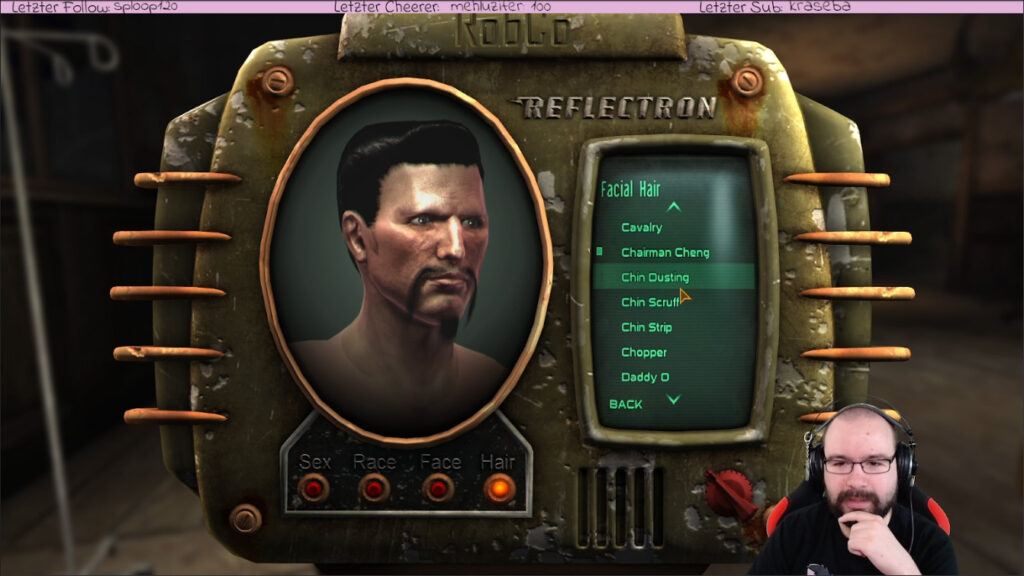
Up to that point I had actually only played one game from the series for a longer period of time, and that was Fallout 4. I bought it for the PC at the time and was immediately caught up in this incredibly large universe that the developers had created. Sure, the map was limited, but the characters, stories and backgrounds it contained had a depth that I hadn’t seen in any other game before.
The stories of the individual people were never unbelievable, though sometimes not too complex. What was more astonishing was that practically everyone had one, and thus everything was somehow explainable – who has what motivation, does what and why? Coupled with the incredibly detailed description of the history of the world so far and the smallest details that fit into the picture scattered everywhere, you could immerse yourself very well in this world.
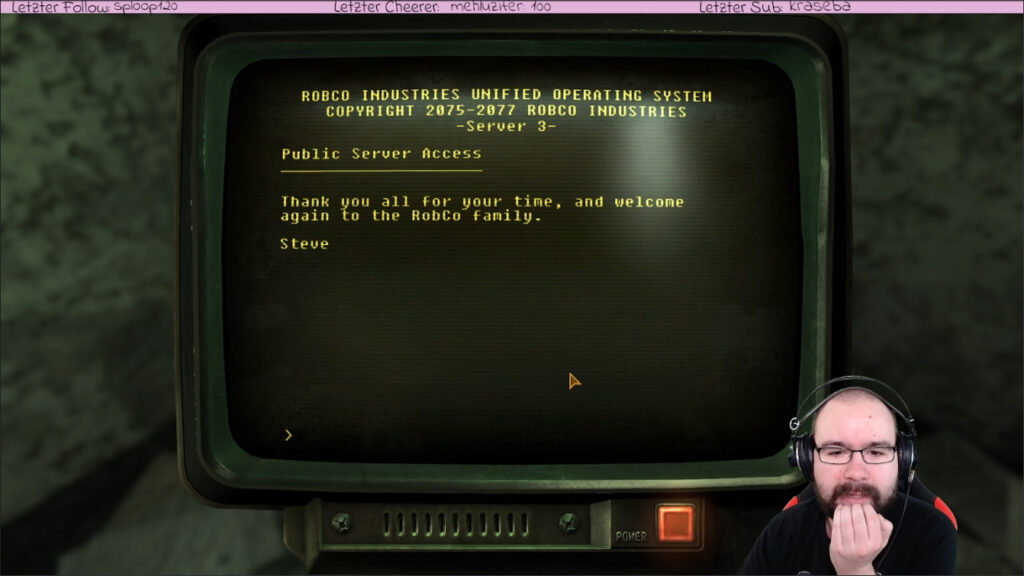
Fallout: New Vegas is in no way inferior. Sure, you notice the age of the game at one point or another in the narrative style, but it is still overwhelmingly profound in many places. As always, I don’t want to go into too much detail about the story itself – also because that would lead way too far. But I can say that the game is a single plot twist. As soon as you think you have understood everything and can judge which side is good and which is bad, the game comes along and turns everything upside down. An element that I really like about these games.
This also gives the game a consequence mechanic that isn’t all that complex per se, but feels very real through the first-person view and the irreversible consequences of one’s actions; at least a shiver ran down my spine at one point or another when I realized what I had triggered with a certain action.
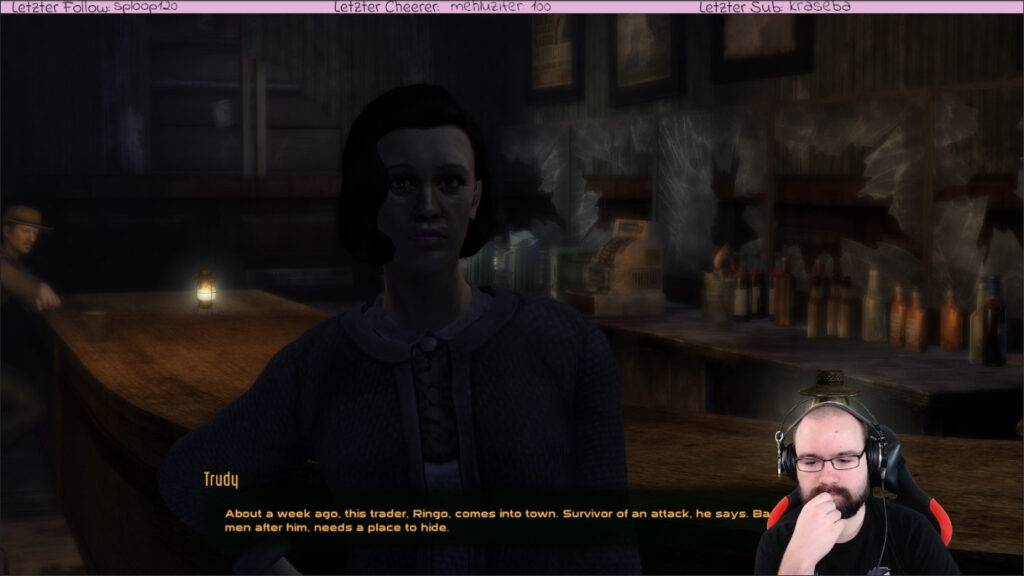
But other situations felt even more real: namely those in which you could foresee the consequences of your actions, but were no longer sure whether you wanted these consequences. This often had to do with a (story-wise) two-dimensional villain suddenly revealing a secret about his past and becoming a three-dimensional person – most often one who acted or chose only out of the consequences of the unforgiving environment.
Another of Fallout’s talents is side tracking. There was virtually no stream where we didn’t miss our set goal by miles. We wanted to start a quest, but we passed an interesting building on the way – two hours later we looked for rocket fuel and found a new weapon or vault to explore. We had completely forgotten what we actually wanted and where we actually were. But we had fun every second of it.
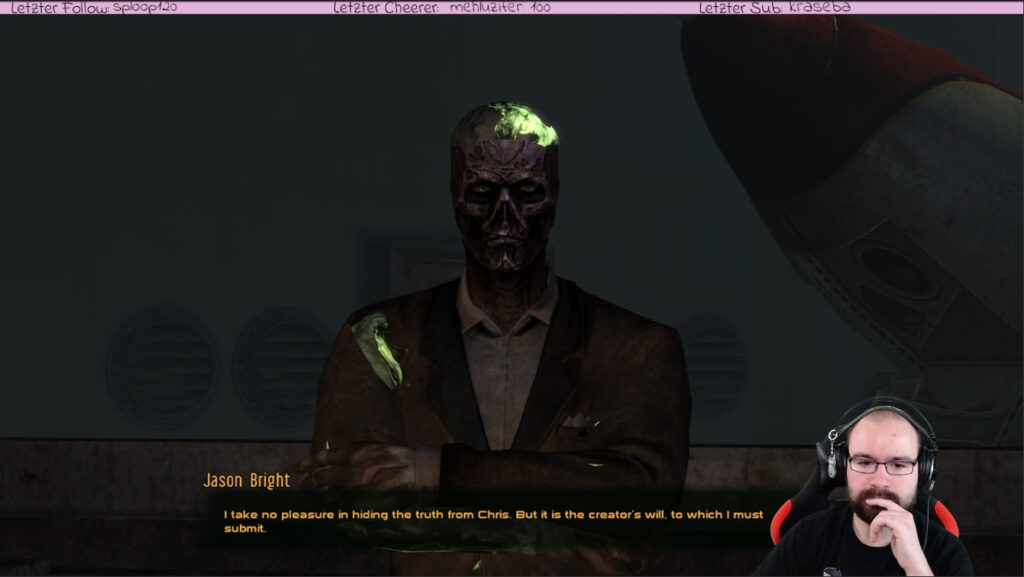
All of this made it difficult to decide what is right or wrong at many points in the game, and I love it. For me it’s a great storytelling when you can put so many different characters in such a complex relationship to each other without creating (too big) plot holes.
After this hymn of praise, however, let’s come to what I personally call the “Bethesda Effect” or the “Bethesda Strategy”. Because as great as the game’s story was, another side of the game was just as terrible: the technical side.
First off, Fallout: New Vegas has bugs. Lots of bugs. An ungodly amount of bugs. So many, in fact, that you can’t even safely play the story through to character creation without it crashing. Apart from the absolutely outdated graphics and the so-so mechanics, this makes the game almost unplayable and under normal circumstances would have been a direct refund via Steam.
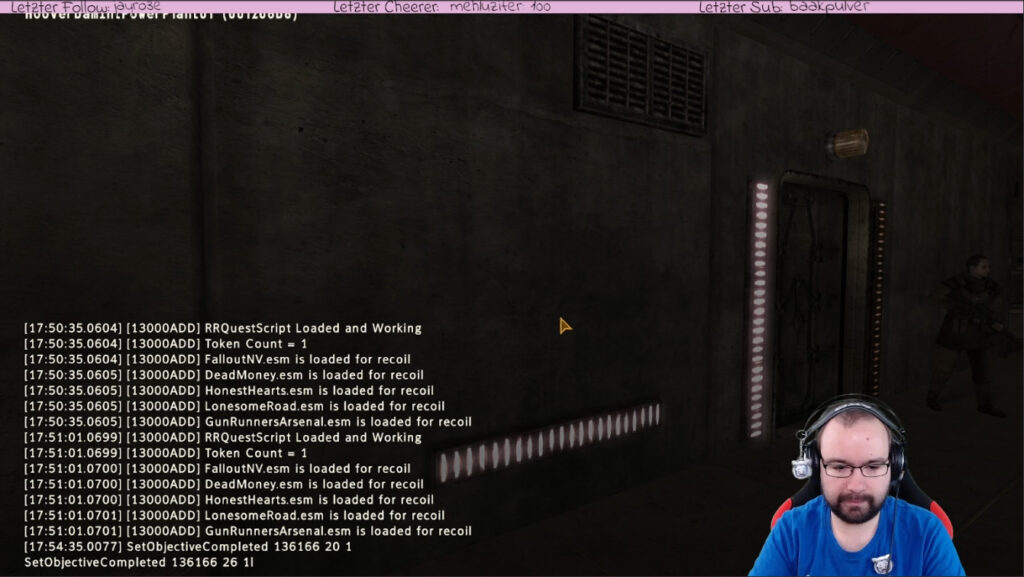
But I knew that a great story would await me, so I made a compromise: mods. I wouldn’t normally do that for a game, but this is where the double standards come in. And Fallout’s amazing community.
This community is very motivated and fixes almost everything in the game. There are about ten mods alone that are supposed to fix the random crashes. Add to that a lot of improvements to the graphics, gameplay and even the sound, and with a total of around 50 mods the game is reasonably playable.
At this point I have to emphasize the “reasonably”. Despite the incredible work of the community, we still had some crashes, graphics issues and bugs in the AI – but back then, blinded by the world and the story, I accepted them. As I said, actually completely atypical for me, but in this case it was really worth it!
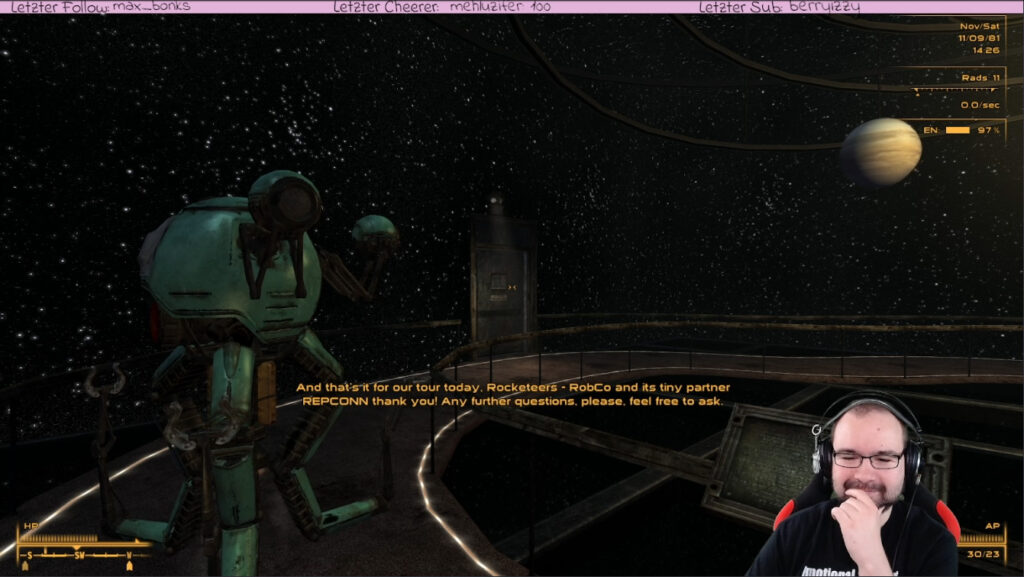
I could write pages and pages more about the game, but that would not be possible without spoilers. I think the fact that I continued playing a hopelessly buggy game to explore the story and the world says all there is to know. However, I can only recommend it to a limited extent: you have to buy the game with all DLCs (for the mods), install a large handful of mods, which is not trivial for everyone, and then you still have a gaming experience limited by bugs and crashes. So while it sure is worth it for fans of the franchise, I can’t recommend it for everyone else.
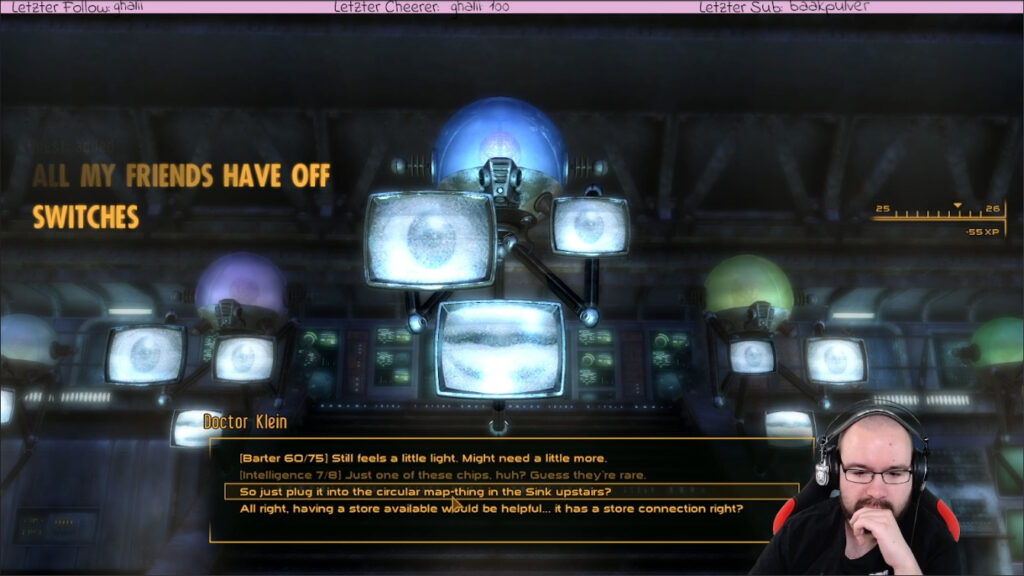
This is also why I didn’t particularly go into the story or the background of the Fallout series itself. I think if you know it, this game can be worthwhile. If you haven’t had anything to do with the series yet, you’ll probably be put off by the necessary preparatory work – so I’ll save this part here.
How did you like the game? Are you fans of the series, have you played “New Vegas” yourself or are you planning to? How do you feel about Fallout’s bug-to-story ratio? Feel free to join the discussion on Discord!